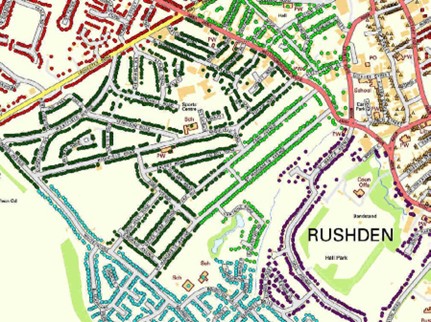Lets work together



Suite 3A, Chapel Allerton House, 114 Harrogate Road, Leeds, LS7 4NY
ukinfo@integrated-skills.com
+44 (0) 3300 888 670

Turning this question around, is it possible to manage waste services without a system? We suggest it is like asking an accountant to do their job without a spreadsheet. The management of waste collections has been getting more complex in recent years and with future changes at hand, managing these will become more complex still. We argue that a comprehensive waste management system is now essential to manage the range of growing demands across the UK waste collection industry. We set out some of the important changes, challenges, and requirements, below:
Two, three and four-weekly residual collection is likely to become the norm, to force recycling performance and meet the recycling targets set out by the UK’s nations. In line with WRAP guidance, food waste is likely to become weekly, as standard, and recycling frequencies will increase to meet the rising recycling targets.
Anticipating DEFRA’s responses to its Resource & Waste Strategy consultations, and following the Welsh Government’s lead in recent years, we expect that a wider, more consistent range of materials will be required to be collected (materials to be confirmed). However, at the same time, Extended Producer Responsibility (EPR) will impact local authority waste collections in ways we are unsure of yet – and will likely lead to some recycling materials leaving local government collection responsibility. The Scottish Government’s Deposit Return Scheme (DRS) which was initiated by Zero Waste Scotland and is currently being rolled out in Scotland will no doubt impact all four nations of the UK in a similar way. This deposit-return system for bottles, cans, and possibly cartons will lead to current recycling materials also leaving local government recycling collections.

Research shows that whilst frequencies may change, the best public participation is where collections are designed to maintain the same day (although possibly different weeks). The public expect up to date information and increasingly, bespoke household-level calendars which show which materials are collected each service day and can be adjusted universally by the authorities to account for service changes over Christmas & Bank Holidays.
When a resident contacts a customer services team, it is certainly reasonable that the services provided at the resident’s address are ‘known’, and service history is available, including reasons for any non-collection and if so, what action is being taken to remedy it.

The public expects to make reports and enquiries outside Council office hours and expect a response. They might ask,
“Why was my bin not emptied today”?
and expect to receive a useful e-response (which accesses live/recent reporting data) such as,
“Your bin was not collected today because…
This is all now possible and has the potential to free up back-office staff to do more meaningful, strategic work.
Pressures on budgets mean that spending on improving services must show a return on investment. A good waste management system can provide both options modelling to determine the service design which will realise those improvements/cost efficiencies and, also, provide the performance management tools to ensure that they are realised.
The key to reducing duplication of effort – In our discussions with our waste management clients the removal of duplication of effort is a key requirement. Providing transparency is the answer to this, by allowing staff to see:
The role of waste manager now encompasses many moving parts and with the rate of change underway, the manager has little time for viewing and managing multiple systems. What is required, is a single, unified view of operations for maximum operating efficiency that integrates vehicle-based cameras, GPS tracking and weighbridge data.
So, the waste manager will need to manage all these factors, as well as the many others not mentioned here. Given the road ahead, we would argue that a waste management system is no longer a luxury, it is an essential requirement.
Would you like to know more about Why do you need a waste management system?? Fill in your details below and let us know how we can help.
Website Designed & Built by we are CODA